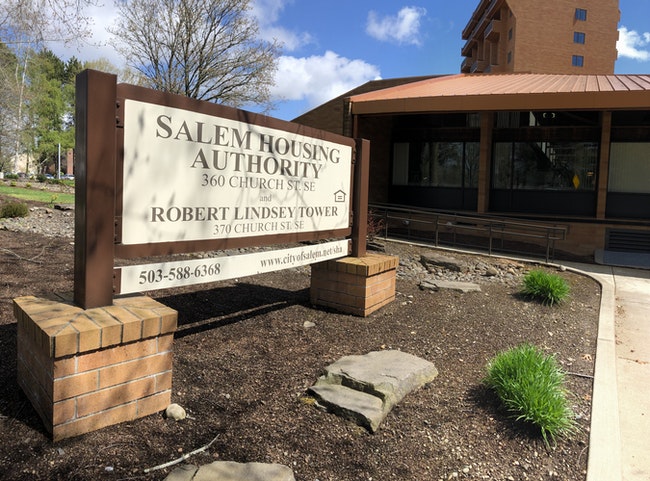 Salem Housing Authority. (Troy Brynelson/Salem Reporter)
Salem Housing Authority. (Troy Brynelson/Salem Reporter)
In his years of working with homeless people, Stephen Goins has explored the why of homeless thought patterns and behavior.
On Thursday, Jan. 23 he’s going to share his insights during a talk titled: “The Homeless Brain” from 5:30 p.m. to 7 p.m. at the Salem Housing Authority’s community room at 360 Church St. S.E.
Goins, transitional programs director of Northwest Human Services, a Salem social service provider, said people want to know why homeless residents behave in certain ways, like urinating in public or throwing trash on the ground. The topic has been on the forefront of the community’s mind as the city has grappled with where to house the area’s unsheltered homeless in the winter months.
“People are really curious about that: ‘Why do they continue to do these things that affect all of us?’” he said.
He said a brain under the amount of stress and exhaustion a homeless person experiences causes them to “literally see life in tunnel vision.”
“It’s impulsive. You feel it, you do it,” Goins said. “You seek relief and you seek basic needs and in the process of doing it you forget what you’re doing is affecting others.”
He said people don’t talk enough about the traumatization of homeless residents, and his talk seeks to address that.
Goins said it was initially geared toward landlords in hopes that his agency could help support the efforts of the city’s Homeless Rental Assistance Program, but with heightened interest in the issue the talk was opened to the public. Goins wants to explain to people why housing is the most important thing to work toward.
“If you can help a homeless person establish safety and you wrap supports around them, they can be successful,” he said.
Goins said he’s curbed his expectations about what people will take away from his talk, but hopes they walk away with knowledge about what the homeless experience is.
“I challenge people to look beyond our own self-preservation as far as determining people are a threat and holding them at a distance. When it comes to helping people who are disenfranchised or experiencing psychological trauma, you have to move toward them,” he said.
Goins said homeless people’s behavior is often painted as abnormal, but research shows it’s not. He said by othering homeless people, it closes the door to improving their lives.
“When we use that language, we close ourselves off, we actually disempower ourselves from actually having influence on that person,” he said.
An RSVP is required for the free talk. Email Kimmberly McBeth at [email protected] to attend.
Have a tip? Contact reporter Saphara Harrell at 503-549-6250 or [email protected].









